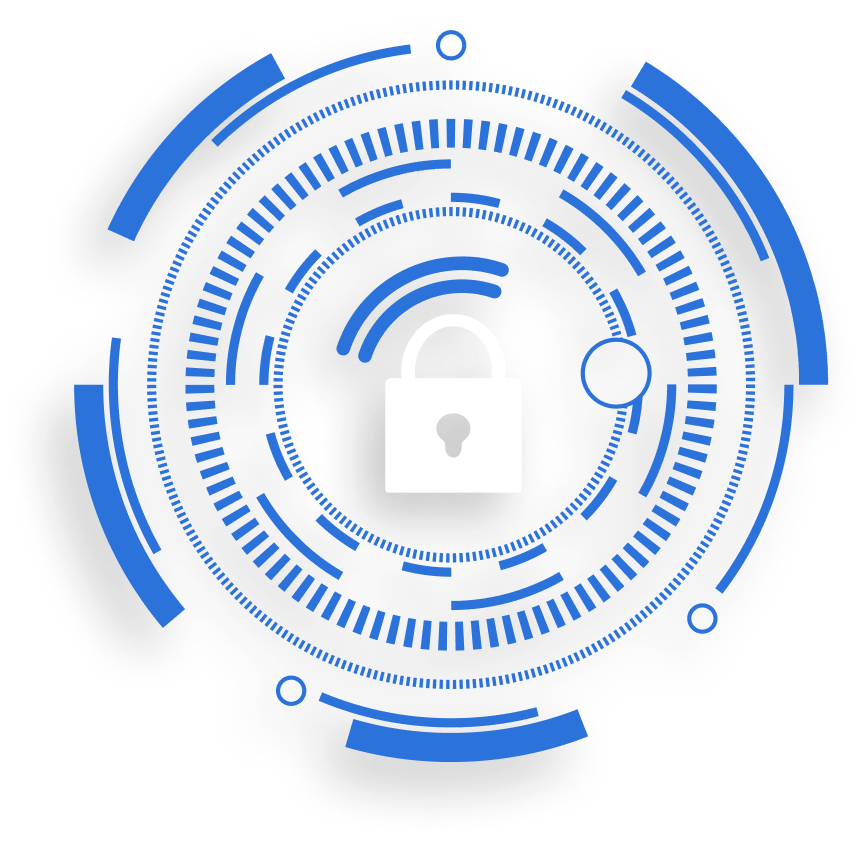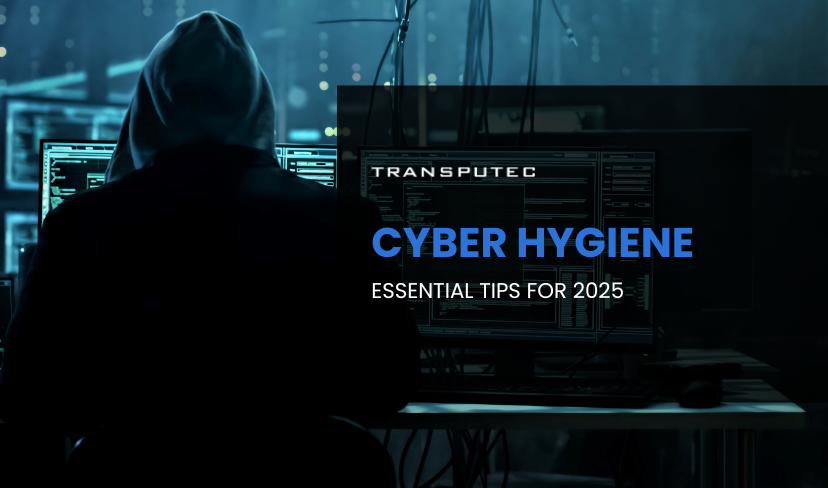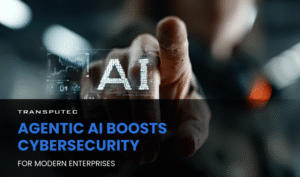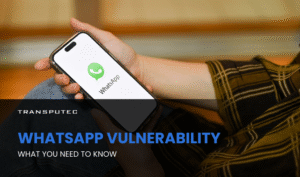Written by KRITIKA SINHA | MARKETING
Last week, a mid-sized manufacturing company lost £2.3 million to a sophisticated phishing attack. The breach wasn’t due to advanced malware or zero-day exploits – it stemmed from basic cyber hygiene failures. A single unopened security update and a reused password were all it took. In today’s hyperconnected business environment, such incidents aren’t just cautionary tales; they’re wake-up calls.
This guide explores practical cyber hygiene strategies for 2025, offering actionable steps to protect your business, real-world examples of successful implementations, and expert insights from Transputec’s cybersecurity veterans.
What is Cyber Hygiene, and Why is It Critical in 2025?
Cyber hygiene refers to routine practices that ensure systems, networks, and devices remain safe from evolving cyber threats. According to IBM’s 2024 Cost of a Data Breach Report, companies with poor cyber hygiene practices face 287% higher breach costs than those maintaining robust security protocols.
In 2025, as organisations adopt hybrid work models and increasingly rely on IoT devices, the attack surface for cybercriminals expands. Ignoring cyber hygiene jeopardises sensitive data and impairs business continuity. Organisations must evolve their cyber practices—and it begins with understanding the essentials.
Essential Cyber Hygiene Practices for 2025
1. Password Management Reinvented
Gone are the days of simple password policies. In 2025, effective password management involves:
- Implementing passwordless authentication methods where possible
- Using AI-driven password managers that adapt to user behaviour
- Employing biometric verification as a standard second factor
2. Continuous Software Updates and Patch Management
With zero-day exploits becoming more common, staying up-to-date is more critical than ever:
- Utilise AI-powered patch management systems that prioritise updates based on risk assessment
- Implement automated rollback features for problematic updates
- Conduct regular vulnerability scans to identify potential weak points
3. Network Security Enhancement
As network perimeters become increasingly blurred, focus on:
- Implementing Zero Trust Architecture across all systems
- Utilising AI-driven network monitoring tools for real-time threat detection
- Employing quantum-resistant encryption protocols for sensitive data transmission
4. Employee Education and Awareness
Human error remains a significant factor in security breaches. Enhance your team’s cyber hygiene through:
- Immersive VR-based cybersecurity training simulations
- Personalised learning paths based on individual risk profiles
- Gamified continuous learning programs to keep engagement high
5. Data Backup and Recovery Strategies
In the face of increasingly sophisticated ransomware attacks:
- Implement air-gapped backup solutions immune to network-based attacks
- Utilize blockchain technology for tamper-proof backup verification
- Conduct regular disaster recovery drills simulating complex attack scenarios
Protect your Business 24/7 with Transputec!
Our Managed SOC Cost Calculator estimates potential expenses for security tools and other costs based on your requirements.
Common Cyber Hygiene Mistakes to Avoid
1. Overlooking Shadow IT
Unauthorised apps and devices within your network create vulnerabilities. Implement strict access control policies and audit your digital infrastructure regularly.
2. Relying Only on Antivirus Software
While antivirus tools are essential, they can’t replace layered defence mechanisms like firewalls, threat intelligence, and encryption.
3. Infrequent Security Audits
Performing regular risk assessments uncovers potential vulnerabilities. Tools such as vulnerability scanners ensure all endpoints and devices are safeguarded.
4. Weak BYOD Policies
Unsecured employee devices accessing corporate resources expose businesses to risks. Define clear Bring Your Device (BYOD) guidelines to mitigate security gaps.
The Future of Cyber Hygiene: Trends to Watch in 2025
The future of cyber hygiene in 2025 will be shaped by emerging technologies and evolving threats. Here are five key trends to watch:
1. AI-Powered Threat Intelligence
As cyber threats become more sophisticated, AI will play a crucial role in enhancing cyber hygiene practices. This includes:
- Real-time threat detection
- Automated response mechanisms
- Predictive vulnerability analysis
- Continuous learning algorithms
- Proactive security management
2. Zero Trust Architecture
The Zero Trust model will become a standard practice in cyber hygiene by 2025. This approach assumes no trust by default, requiring continuous verification of every user, device, and application attempting to access network resources. This includes:
- Continuous user verification
- Micro-segmentation strategies
- Multi-factor authentication
- Least-privilege access controls
- Dynamic security perimeters
3. Quantum-Resistant Encryption
With the looming threat of quantum computing potentially breaking current encryption methods, organisations will prioritise quantum-resistant encryption as part of their cyber hygiene practice. This includes:
- Post-quantum cryptography development
- Advanced encryption protocols
- Protection against quantum computing threats
- Comprehensive cryptographic upgrades
- Long-term data security strategies
4. Advanced IoT and Cloud Security
As the number of IoT devices is expected to exceed 32 billion by 2025, and over 90% of companies will use multiple cloud platforms, cyber hygiene practices will evolve to address the unique challenges posed by these technologies. This includes:
- Enhanced IoT device protection
- Multi-cloud security frameworks
- Comprehensive configuration management
- Network segmentation techniques
- Integrated security monitoring systems
5. Intelligent Security Awareness Training
Human error remains a significant factor in security breaches, making employee education a critical component of cyber hygiene. The training includes:
- AI-driven personalised learning
- Virtual reality simulation training
- Continuous cybersecurity education
- Gamified learning experiences
- Adaptive training methodologies
How Transputec Enhances Cyber Hygiene for Businesses
Transputec enhances cyber hygiene for businesses through a comprehensive approach that combines advanced technologies, expert services, and employee education. Here’s a detailed explanation of how Transputec contributes to improving cyber hygiene:
1. Security Awareness Training and Education
Transputec offers extensive security awareness training programs to educate employees on cyber hygiene best practices. These programs cover:
- Identifying phishing attempts
- Practicing good password hygiene
- Handling sensitive data securely
- Understanding cybersecurity policies and procedures
By fostering a culture of cyber awareness, Transputec helps organisations reduce human-related security risks
Transputec employs AI-powered systems to continuously monitor networks for potential threats. This includes:
- Real-time threat detection
- Automated response mechanisms for quick containment and mitigation
- Customised security strategies tailored to specific business needs
3. Comprehensive Protection Services
Transputec offers a wide range of cyber security solutions to safeguard businesses from evolving threats, including:
- Cloud Security
- Penetration testing
- Proactive defence measures
- Real-time monitoring for quick identification and mitigation of potential security breaches
4. Compliance Assistance
Maintaining regulatory compliance is crucial for cyber hygiene. Transputec helps organisations navigate complex requirements and maintain compliance with frameworks such as GDPR, HIPAA, and PCI DSS.
5. Incident Response Planning and Support
Transputec assists in developing robust incident response plans to ensure swift action during cyber attacks. This includes:
- Procedures for identifying, containing, and mitigating security incidents
- Guidance and support throughout the incident response process
6. Penetration Testing and Vulnerability Assessments
Transputec conducts comprehensive penetration testing, simulating real-world cyberattacks to identify vulnerabilities in clients’ systems. This proactive approach helps organisations enhance their cyber hygiene by addressing weaknesses before they can be exploited.
7. AI-Powered Cloud Security
Transputec leverages AI-powered cloud security solutions to provide.
- Proactive threat detection
- Reduced false positives
- Automated responses to neutralise threats in real-time
- Scalable security that grows with the business
8. Remote Worker Protection
Recognising the unique challenges of remote work, Transputec offers tailored solutions for protecting remote workers, including:
- Robust network security and endpoint protection
- Security assessments and audits for remote work setups
- Employee training specific to remote work scenarios
By implementing these comprehensive measures, Transputec helps businesses maintain strong cyber hygiene practices, reducing their vulnerability to cyber threats and ensuring a more secure digital environment.
Conclusion
Cyber hygiene isn’t an option in today’s interconnected digital world—it’s a business imperative. From strengthening passwords and conducting regular backups to fostering a culture of cybersecurity awareness, maintaining robust cyber hygiene can safeguard your organisation against costly breaches.
Let Transputec partner with you to create a resilient cybersecurity strategy tailored to your needs. With our expertise, you can mitigate risks, comply with evolving regulations, and build trust with your clients.
Ready to prioritise cyber hygiene in 2025? Contact Transputec today to connect with an expert and get started on protecting your enterprise.

Secure Your Business!
Ready to explore how we can enhance your security posture? Contact us today to speak with one of our experts.
FAQs
What is Cyber Hygiene, and why does it matter?
Cyber hygiene refers to maintaining digital cleanliness through security practices like regular updates, strong passwords, and data backups. With cyber threats rising, businesses adopting these habits reduce vulnerabilities and ensure continuity.
How does Transputec improve my business’s cyber hygiene?
Transputec provides tailored cybersecurity strategies, continuous threat monitoring, employee training, and scalable solutions to enhance your security posture. We equip businesses to proactively defend against cyber threats.
Can small businesses benefit from Transputec’s services?
Absolutely. Small businesses often have limited resources for in-house cybersecurity. Transputec’s scalable, cost-effective solutions empower small enterprises to adopt robust cyber hygiene practices affordably.
What are some practical cyber hygiene practices recommended by Transputec?
Transputec recommends practices like enabling multi-factor authentication, training employees on phishing awareness, conducting regular backups, and implementing endpoint protection for holistic security.
How can Transputec help my company in achieving compliance?
Transputec stays updated on global regulatory requirements and offers tools and advisory services to align your cybersecurity practices with GDPR, ISO 27001, and other compliance standards.







